Introduced in July 2020, the Toyota Corolla Cross Hybrid has received its mid-cycle facelift globally. Much like the original, the facelift premiered in Thailand and should reach global markets during the next roll out phase. About a year (by our reckoning) before the new Corolla Cross Hybrid arrives in the U.S., I saw it in person at the 2024 Bangkok International Motor Show in March. Here’s a round-up of my experience with the restyled hybrid SUV.
Note that the model shown and discussed in this story is the Asian-spec new Corolla Cross Hybrid. The updated U.S.-spec model is likely to bear similar changes, but there’s no official confirmation on the details.
Design
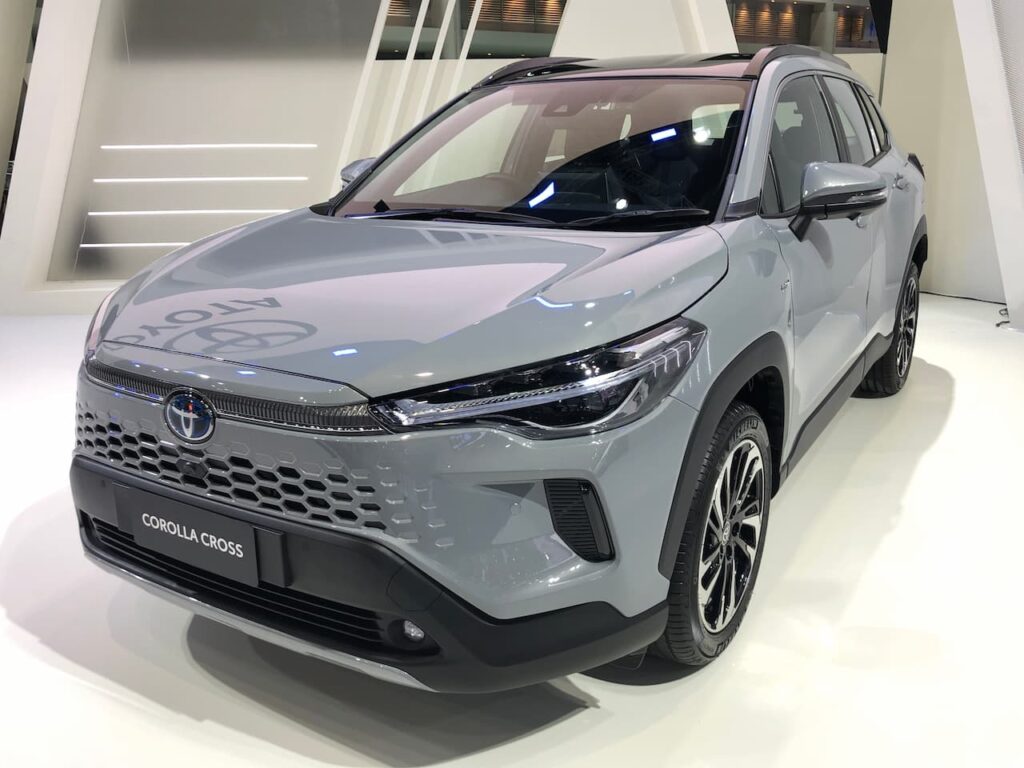
The new Toyota Corolla Cross Hybrid gets minor design tweaks. At the front, it has a new honeycomb upper grille designed similar to that of an EV, new headlamp graphics, a new bumper, vertical side air inlets with edgy C-shaped surroundings, and a new lower air intake. Contrary to appearances, the shimmery decor panel between the headlamps is not a wide light stripe. Like the partially open upper grille, it tries to replicate the styling that is commonplace on modern EVs.
Toyota has introduced dynamic turn signals (front) with the facelift, and I feel it leaves a slightly more upmarket impression. However, despite this feature, I still prefer the simpler, sportier, and more assertive front fascia of the current U.S.-built model, which overall is more appealing overall.
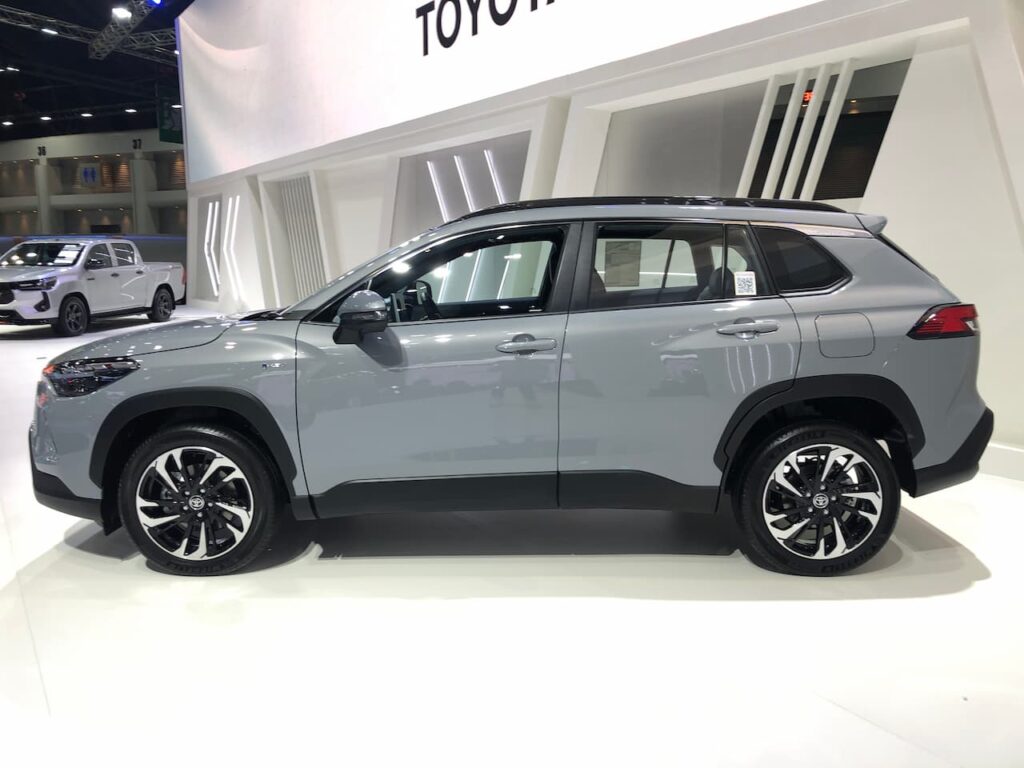
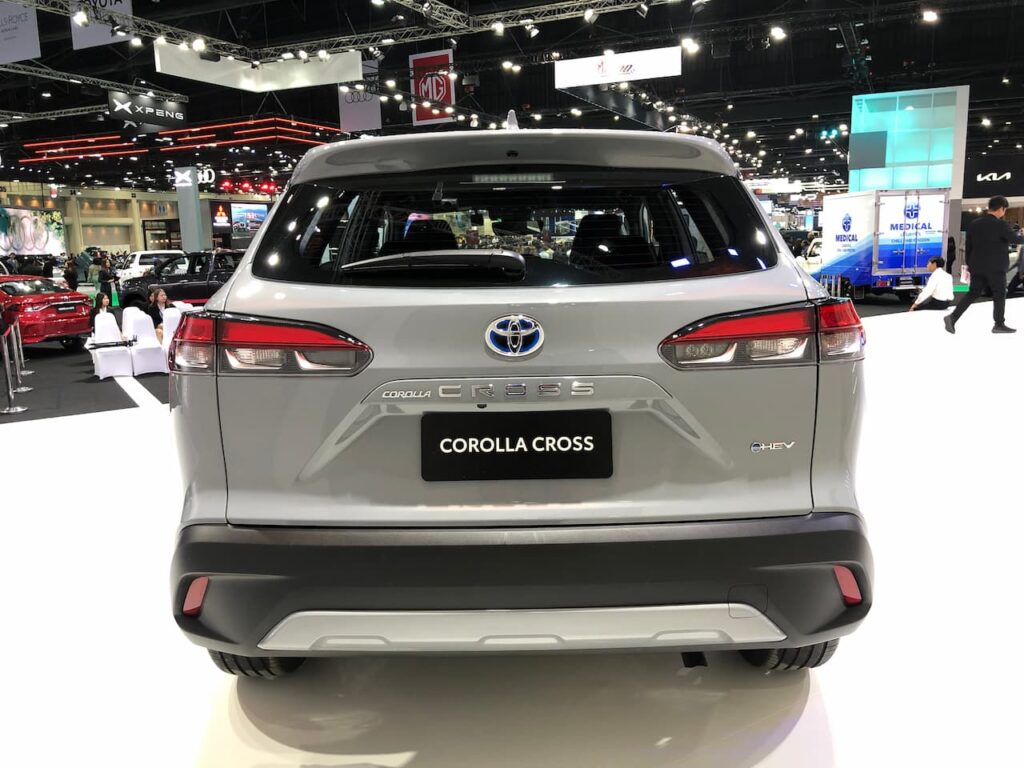
On the sides, Toyota has used new 18-inch alloy wheels on the updated Corolla Cross Hybrid. I noticed that the latest model features the company’s new Beyond Zero badge along with a “HEV” inscription instead of the usual Hybrid Synergy badge and “Hybrid” lettering on the front quarter panel. At the rear, the liftgate also displays these changes. The combination lamps has a tweaked design on the inside but carry the same shape.
Interior
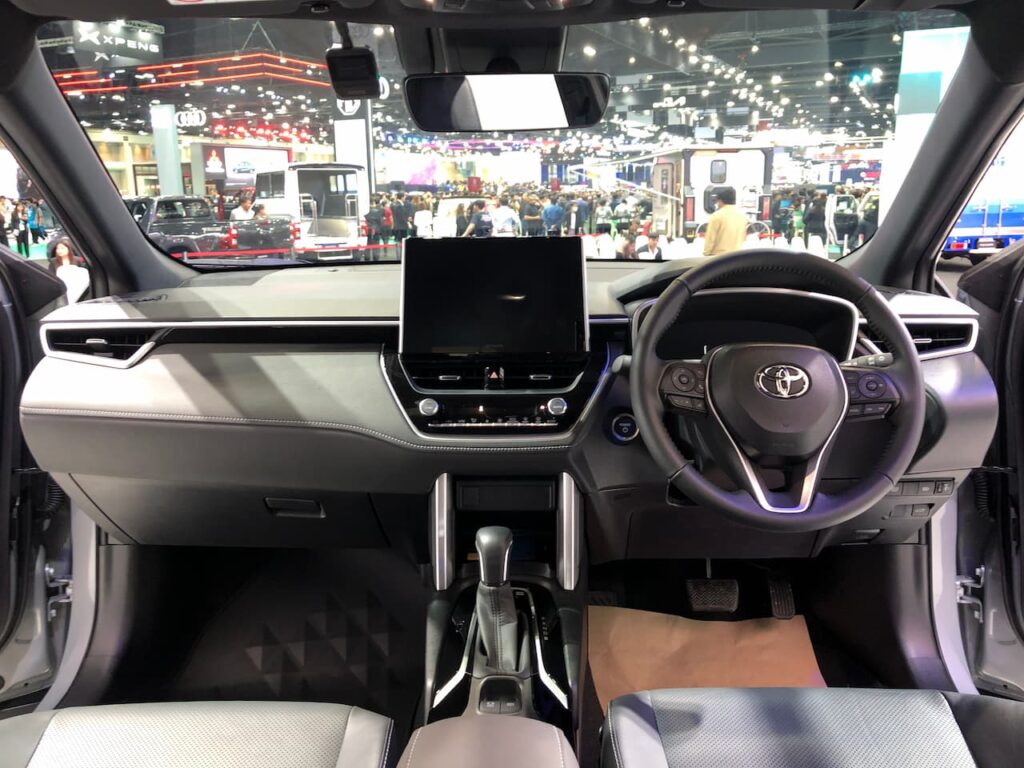
The interior of the new Toyota Corolla Cross Hybrid is sufficiently modern and avoids any pretentious styling. I like the familiar non-minimalist, no-frills design of the cabin. Although things appear quite close to the outgoing model, there are subtle visual and functional changes. For example, there’s a 10.1-inch HD touchscreen infotainment system instead of the 9-inch touchscreen infotainment system. Besides the bigger and sharper display, the system gains wireless connectivity for both Apple CarPlay and Android Auto.
In the U.S., I expect Toyota to introduce a new 12.3-inch touchscreen infotainment system as an option to the existing 8-inch touchscreen infotainment system with the facelift. Like this Thai-spec vehicle, the U.S. model should gain the new 12.3-inch digital instrument cluster, replacing the familiar 7-inch unit in the top-end configuration. Also new in the updated Corolla Cross Hybrid is a 360-degree camera system, a feature I’m certain will be available in the U.S., too.
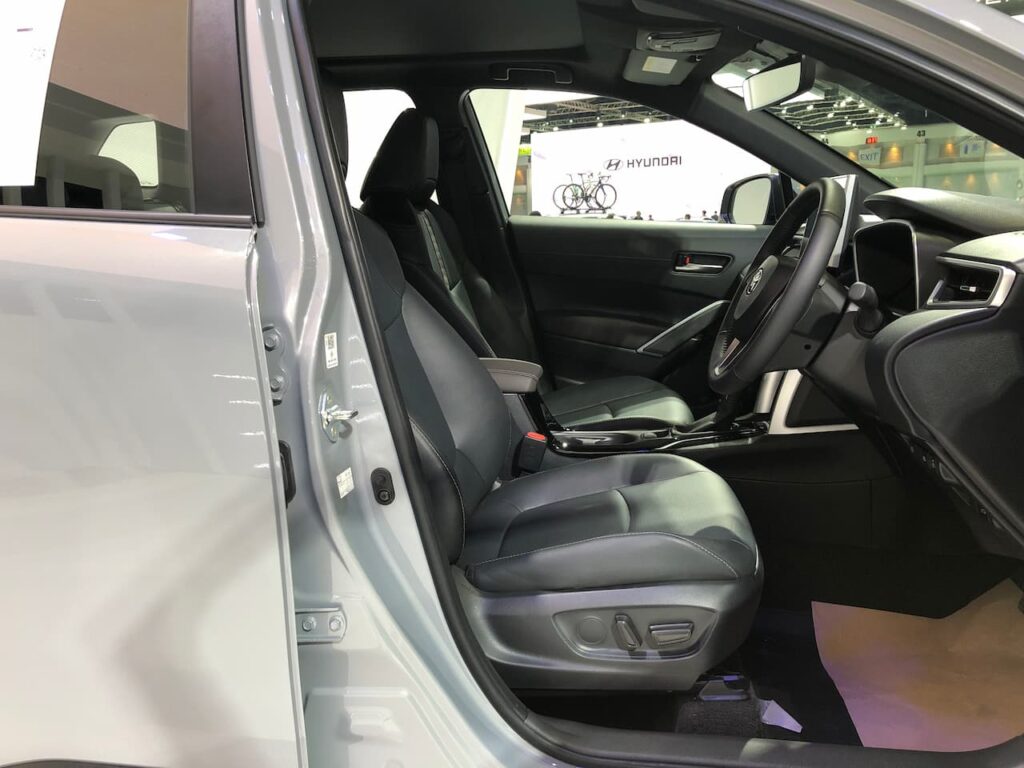
At 5’7”, I encountered no difficulties with either ingress or egress in the new Corolla Cross Hybrid, both in the front and the rear seats. I first sat in the driver’s seat and noticed it offered good adjustability. I had six inches of headroom give or take, so tall drivers would also be comfortable here. However, while I had sufficient under-thigh support, I felt that the cushion was a little short for tall people. The side bolstering kept me nicely tucked in the driver’s seat and the lumbar support was good, too.
Thanks to the properly angled and sized pillars and the generous glass area, I found the all-around visibility to be good. The steering wheel felt grippy and I love Toyota for providing switches, knobs, and buttons for the basic functions. I found the quality of the materials and parts to be decent. I was left thinking that the new Corolla Cross Hybrid would be a perfect choice for a new driver.
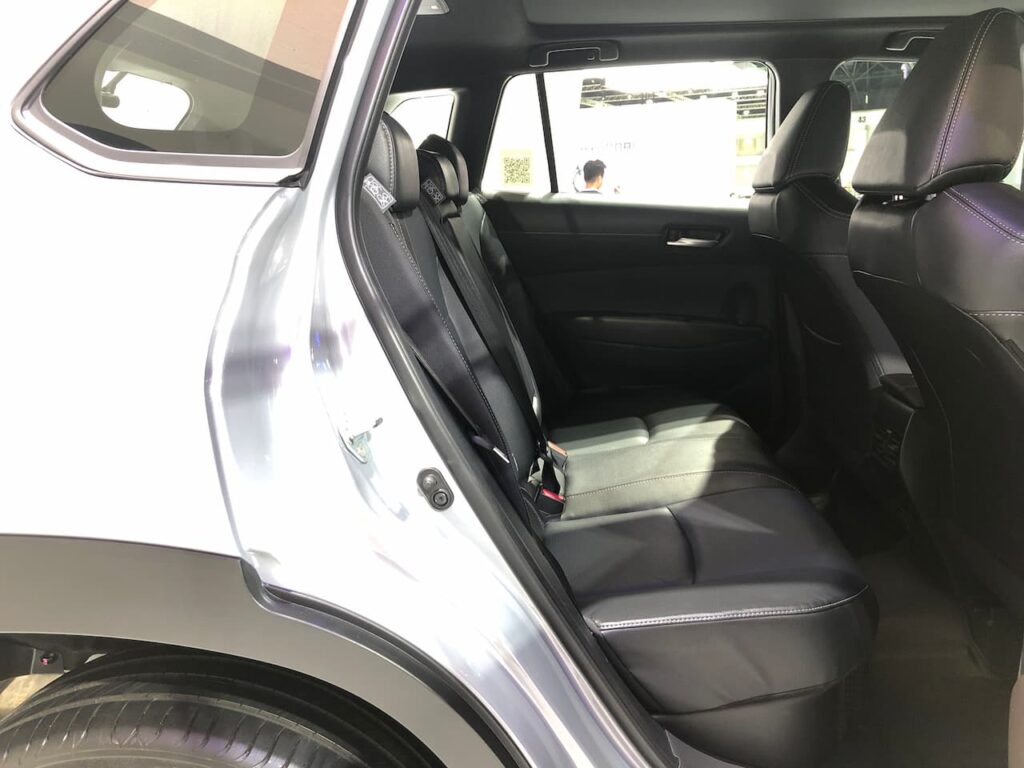
In the back, I had only about three inches of headroom, which suggests that taller passengers might need to sit in a somewhat crouched position. However, I didn’t feel any lack of legroom or knee room. The under-thigh and lumbar support were satisfactory, and the headrest was comfortable. I also liked the high level of outside visibility. I must mention, though, that I wouldn’t be comfortable for long distances sitting in the middle position of the bench seat. The headroom there was particularly tight, and the legroom was noticeably worse, although this wasn’t unexpected or shockingly bad.
Specifications
This particular new Toyota Corolla Cross Hybrid employs the 2ZR-FXE 1.8-litre gas engine that produces 72 kW and 142 Nm of torque. The engine is married to an e-CVT and assisted by a permanent magnet synchronous motor. The latter is presumably the same 1NM unit, as it’s tuned to develop the identical 53 kW and 163 Nm. Similarly, it draws supply from a nickel-hydride battery pack. The hybrid system, like in the outgoing SUV, produces 90 kW of total power.
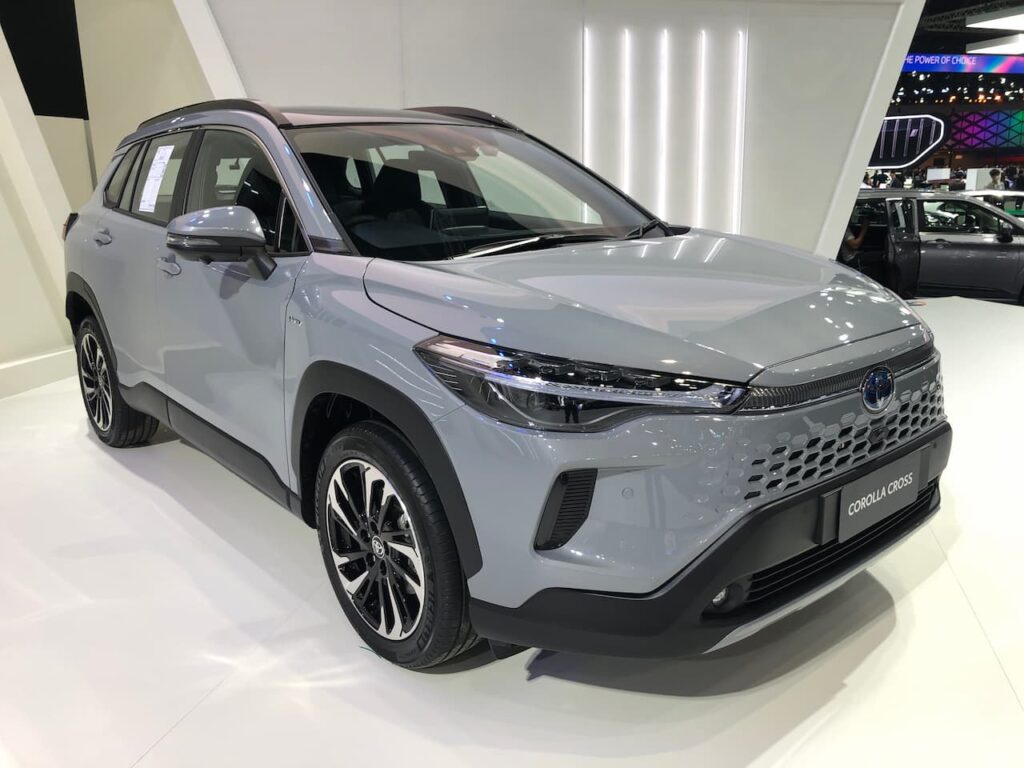
In the U.S., the Toyota Corolla Cross Hybrid should continue to use the more powerful, 196 hp powertrain following the facelift. This system combines a 2.0-liter gas engine (150 hp/139 lb.-ft.) with a permanent magnet synchronous motor that produces an undisclosed amount of power and 151.94 lb.-ft. of torque. Similarly, the latter may continue relying on a more advanced, lithium-ion battery pack. The EPA-estimated combined fuel economy could improve from the current 42 MPG to a slightly higher figure of 43-44 MPG.
Price & Release Date
While there’s no official update, we expect the new Toyota Corolla Cross Hybrid to arrive in the U.S. in Spring 2025. Prices should continue to begin at just under USD 30,000.
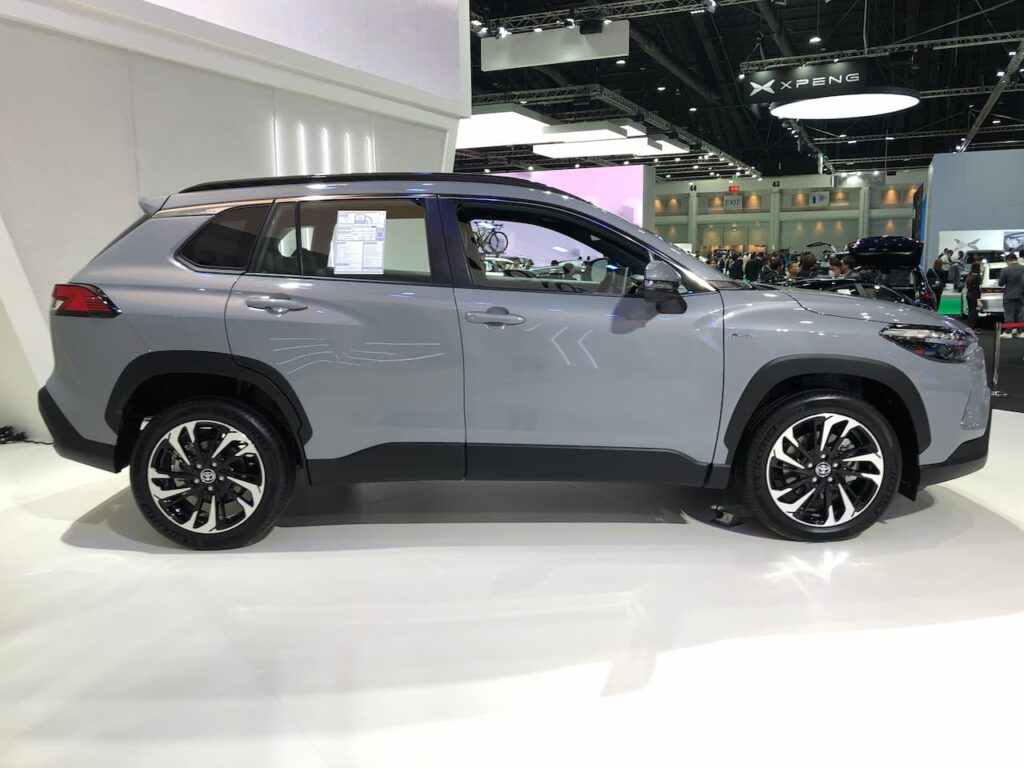
The production of the Corolla Cross began in September 2021 at the Mazda Toyota Manufacturing (MTM) plant in Huntsville, Alabama. This plant has an annual capacity of 150,000 Toyota vehicles. Toyota began assembling the Corolla Cross Hybrid alongside the conventional gas variant in Huntsville last year. Once ready, the updated U.S.-spec Corolla Cross Hybrid will be produced at the same facility.
Also See: 2024 Toyota Corolla Cross Hybrid Nightshade is unique but not extensively
TopElectricSUV says
The Toyota Corolla Cross Hybrid is a cleverly thought compact SUV with decent space, good comfort, simple interior controls, and an array of essential connectivity and driver assistance technologies. With the inbound improvements, I think it makes for a better urban commuter for small families and young customers getting their hands on their first vehicle.

I got my Master’s in Business Management & Administration and have been an International Automotive News Editor since 2014. I’ve traveled to global motor shows and automotive events, driven various types of vehicles, and focused on hybrid and electric cars in the last 4 years.

Comments are closed